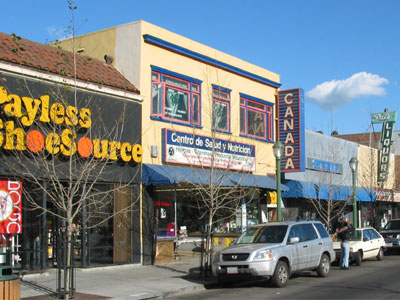
As the city of Oakland grapples with a budget crisis, a glance over the 2009–11 budget proposal reveals a telling example of irresponsible public spending. Despite recent controversy surrounding lavish travel budgets for politicians, city officials still haven’t learned their lesson.
Significantly, the city is now set to impose a 3 percent hotel tax surcharge beginning in January, which will generate around $2.7 million annually. Voters approved the surcharge
last month, but how are city officials justifying this late addition tax hike?The new revenue is not being used to stem the deficit, an excuse that I suspect city officials will begin to use with increasing frequency to defend similar impositions on unsuspecting citizens and businesses. Rather, the money is to be divided among the Oakland Museum of California, Oakland Zoo, Chabot Space & Science Center, and various cultural arts programs and festivals.
First, we must look at the impact of the tax itself. Given the state of the tourism industry, this hotel tax hike will cost jobs and jeopardize businesses by driving travelers to neighboring cities with lower tax rates, such as Berkeley and Emeryville. To place the city’s burden on an industry so reliant on labor in times of economic hardship and high unemployment is indefensible.
Furthermore, the increase in government revenue is being matched with an identical increase in spending by the recipient institutions. To quote the budget proposal directly:
“The revenue generated from the Hotel Tax surcharge will not supplant any existing funding sources for these institutions; it is instead intended to provide needed financial stability and vitality. The Proposed FY 2009–11 Budget for Hotel Tax did not include the increase from this proposal to increase Hotel Tax, as such an increase would be “budget neutral” due to offsetting new costs.”
When analyzing the institutions, the case against additional funding becomes even stronger. The Oakland Museum of California is currently undergoing major renovations, having raised $29 million from private donors and $23.6 million in bonds issued by the city since 2002. One would imagine that city funding would be reduced in light of the fiscal crisis, and that the museum would have scaled back its grand plans. However, there have been no revisions to these massive spending plans by the museum.
It’s laudable that they are at least partially supporting themselves with market mechanisms—evidence that such valuable institutions could flourish without government support. Yet given that the city currently has over $1 billion in debt, there is a clear opportunity to cut funding here. Instead, the city of Oakland is actually giving the museum more money to spend.
A private institution would naturally be forced to revise major investment plans in response to economic hardship, but government-funded projects such as these can blithely continue to spend since they never have to assume total responsibility for coming up with the cash. Rather, the taxpayer foots the bill, to the tune of $6.5 million this year. Put that money back into the pockets of consumers and allow the museum, zoo, and similar programs to compete to provide the most winning standard of service—without penalizing a fellow arm of the tourism industry.
- Jonathan Wyse is a student of economics at Trinity College in Dublin, Ireland, and an intern at the Independent Institute in Oakland. The original version of this article was edited for length.
